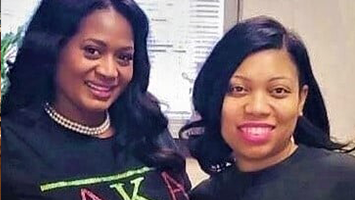Celebrating Black History While Overlooking Black Futures
 Every year when February rolls around, I notice the same thing time and time again: all my internet ads turn toward Black history, the commercials on tv highlight historic Black icons, and even the pages I follow on social media platforms like Twitter and Instagram redirect their focus to celebrating the Black community’s accomplishments over the last half millennium or so. From one perspective, our country comes together to recognize the powerful resilience and excellence of the Black community through our collective history. From another perspective, companies, organizations, and even the social media apps we follow are all missing the mark on this celebration– which should be focusing on, recognizing, and celebrating Black futures.
Every year when February rolls around, I notice the same thing time and time again: all my internet ads turn toward Black history, the commercials on tv highlight historic Black icons, and even the pages I follow on social media platforms like Twitter and Instagram redirect their focus to celebrating the Black community’s accomplishments over the last half millennium or so. From one perspective, our country comes together to recognize the powerful resilience and excellence of the Black community through our collective history. From another perspective, companies, organizations, and even the social media apps we follow are all missing the mark on this celebration– which should be focusing on, recognizing, and celebrating Black futures.
The first challenge: rewiring your thought process. Of course, there can never be too much teaching or sharing of Black history– it’s well known that history paves the way for the future. But when Black children are quietly warned to navigate the world more delicately, what would happen if we turned our attention and focus not only to celebrating Black history but to creating a better future for our young Black generations? We have the power to transform what Black history could look like in 50 years. Could we raise up Black lives that may otherwise be forgotten? By thinking outside of the present time, we are able to gain more control over Black futures. Try this: next time you are about to say or write Happy Black History Month change it to Happy Black Futures Month.
The second challenge: sharing content. Sharing historical content is simple: find a historical event and retell the story in some way, shape, or form. But how does one share content about the future? If we shift our mindset and framing when we share Black history narratives, we can start connecting those stories to our present day lives and events. This framing will lead us to questions like:
- “How can we lead by Madame CJ Walker’s example, and create opportunities for Black women to run their own businesses?”
- “Is there a pathway to changing the demographics of who owns U.S. sports teams?“
- “Almost 70 years after Brown v. Board of Education, how do we collectively gain more educators of color in our school/district staff?”
 The final challenge: staying in an innovative mindset. When March 1st hits, don’t stop thinking about Black futures. Many, including us at LINC, have taken the initiative to change Black History Month to Black History Year. We need to do the same, if not more so, with Black Futures Month. "[Black Futures Month] inspires us to envision, build, and define the Black future, where Black people are liberated.” (BLM)
The final challenge: staying in an innovative mindset. When March 1st hits, don’t stop thinking about Black futures. Many, including us at LINC, have taken the initiative to change Black History Month to Black History Year. We need to do the same, if not more so, with Black Futures Month. "[Black Futures Month] inspires us to envision, build, and define the Black future, where Black people are liberated.” (BLM)
To move forward and create change, we must do so first by changing the way we think about Black History Month, to focus more on Black Futures. If we can unite to do so in a collective manner, new ideas and creations can be generated faster to, in turn, lead to a better future for Black youth.
Source: https://blacklivesmatter.com/black-lives-matter-global-network-launches-black-lives-matter-arts-culture-x-black-futures-month-with-blackfutures-campaign/